August 24, 2016, Bishop Justin Nzoyisaba, president of the National Commission for Inter-Burundian dialogue, presented at a press conference, a brief summary of a semi-annual report of the dialogue underway in Burundi. Proposals were received differently by the actors in the Burundi conflict.
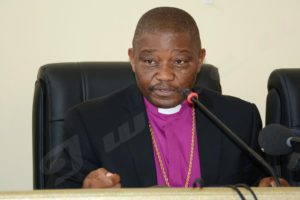
The President of the CNDI, Bishop Justin Nzoyisaba, said the commission has not finished counting all the accumulated contributions
As it can be read in that report, “the vast majority of participants in the dialogue want the president to exercise more than two terms in office and the Constitution to override the Arusha Agreement “. Furthermore, all participants want the former heads of state not to sit in the Senate without being elected, the judiciary to be at the same level as the legislative and the executive and for the state to put an end to political violence and impunity. They demanded the removal of imperfections found in the Constitution and Arusha Agreement. They also want the amendment of the law governing political parties, the penal code to end impunity, the electoral code as well as the law governing civil society and religious groups to conform to their statutes.
Nevertheless, Bishop Nzoyisaba, president of the CNDI said the commission has not finished counting all the accumulated contributions. And all ”the concerned ” have not yet been consulted. So, he announced a six-month extension was granted. A time to meet Burundians outside the country in refugee camps, and organize sessions in villages etc.
“We want to gather ideas and find solutions,” Bishop Justin Nzoyisaba said at the launch of the inter Burundian dialogue on January 19 in Kirundo, northern province of Burundi. As for the government of Burundi, it is a national dialogue that has to be held among Burundians and without international mediation. “A dialogue that would address various issues raised by the electoral crisis of the past months, as ways to clean up the socio-political climate and security,” added Bishop Nzoyisaba.
A game skewed from the start
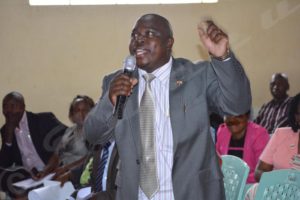
In Kirundo, an MP from the CNDD-FDD, even suggested that an elected president chair until they are unable as for the old monarchs of Burundi.
During the first appointment in Kirundo, the CNDI brought together representatives of political parties, religious groups, civil society, women, youth the army and the police. But the opposition and civil society were absent. At the opening of the debate, the floor was first given to CNDD-FDD members “because their party won the elections.”Afterwards followed interventions, more or less similar, as if learned by heart.
Setting the tone, elected representatives from the ruling party, from the top to the bottom, came back to the same claims: the revision of the Constitution, the rejection of the Arusha Agreement and term limits, and the non- interference of the international community, especially the Belgians in the internal management of the Burundian issues.
Speakers also pointed at the leaders of political parties of the opposition and some civil society organizations as responsible for insecurity and the Catholic Church, which, instead of looking after its flock, played politics.
A modus operandi to be followed in almost all other sessions of the dialogue, with some voices questioning the proposals here and there, and with boos often. In Kirundo, Isidore Nzeyimana, an MP from the CNDD -FDD, even suggested that the elected president chairs until they are unable as for the old monarchs of Burundi. The same proposals were also shared by most Protestant pastors in the room.
Reactions
Dr Jean Minani “Arusha, a cohabitation pact”
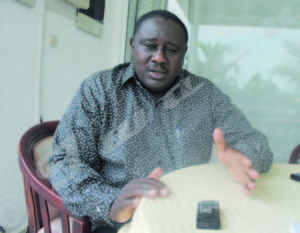
Dr Jean Minani
“For Cnared-Giriteka, the opposition plateform and the vast majority of the people of Burundi, the Arusha Agreement for Peace and Reconciliation in Burundi is a cohabitation pact sacred and the cornerstone of stability of Burundi which has proven itself” as it can be read in a statement released on Tuesday, almost a week after the report of the CNDI.
For Dr Jean Minani, president of the opposition platform, arrogating to oneself the right to unilaterally amend the constitution is a disdain, an irresponsible act and a declaration of war to the people of Burundi. He states that doing away with presidential term limits is equivalent to legalizing the illegal third term of President Nkurunziza.
The Cnared chairman also alerted that “such a game is also to enable him to remain in power forever.”
Dr Minani finds that proposals to bury the Arusha Agreement and amend the Constitution terminate ipso facto inclusive negotiations under the mediation of the East African Community (EAC) and supported by the international community: “It is a contempt for the people of Burundi, the sub-region, the African Union, the United Nations, initiators and sponsors of those negotiations in this Agreement.”
Speaking on the revision of the law on political parties, civil society organizations and religious denominations, the opponent does not mince words: “The final objective is the establishment of a single party and a legalization of the terror of a unique thinking in progress.”
Evariste Ndayishimiye, CNDD-FDD secretary general: “There is nothing to alert!”
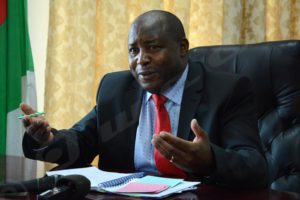
Evariste Ndayishmiye
According to the number one of the presidential party, there must be a distinction between things; there is no cause for alarm on the report of the CNDI. “The CNDI gathered everyone to put together all the ideas, but without any guidance. It did not invite members of the CNDD-FDD only. Its report was based on everyone’s contribution. ”
According to the former general, one must accept that people do not think the same way .Ideas should be put together for what is good for Burundi to move forward. “The government received the report but has not yet reacted. It has to judge whether what is in this report is good or bad for Burundi, compared to the will of the Burundian population, and taking into account the commitments of the international community. “So he reassured that this report should not cause discomfort and thus no reason to alert today.
Domitien Ndayizeye, “Arusha is a reference”
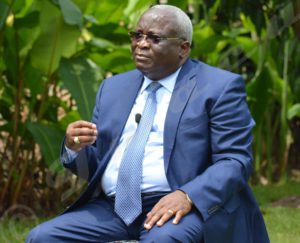
Domitien Ndayizeye, “We will not die! “
Former President Domitien Ndayizeye believes that one should not change the Arusha Peace Agreement. He states that the agreement, negotiated over two years, was strained and repeatedly violated. Domitien Ndayizeye says that the agreement is currently under pressure for its revision in both the core and the spirit. “We wanted peace, reconciliation, reassuring security and defense forces for all.” He regrets that today, there is a tendency to play on ethnicity to break the balance within defense and security forces. “The Arusha Agreement resists. The international community and the sub-region which are guarantors of this text should defend it to prevent it from being disparaged. Arusha II is in this sense. ”
For the former Head of State, even if it would be changed, the best moment to do so is not during the time of crisis.
”The environment is not conducive. This may plunge us into other crises. ”
As for the question of the impossibility of being a senator for life, he didn’t seem to care a great deal.”Whether I am in the Senate or not, this will not prevent me from breathing or living. And the same for my colleagues”, says the senator for life teasingly. He stressed that this provision was adopted not only to improve the quality of debate and the capacity of the senate, but also to give former heads of state some political visibility. “In view of their contacts with the international community, they can bring an added value to the country, but if the current government believes that it is not necessary, we will not die.”
Leonce Ngendakumana: “These people are creating the conditions for a fratricidal civil war”
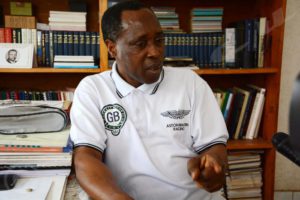
Leonce Ngendakumana
According to Léonce Ngendakumana, president of the Alliance for Democratic Change (Adc-Ikibiri), only the result of an inclusive dialogue under international mediation may authorize the amendment of the Constitution. Ngendakumana is not surprised by such a report.
This opponent said that the commission was established, not by the ruling party, but by President Nkurunziza himself to disabuse and manipulate the public opinion. According to him, the commission does not care about the real challenges the country is currently facing. In short, he concluded, these people are creating the conditions for a fratricidal war, which is a major setback in the process of democratization and stabilization of the country.
“The will of the people should take precedence over everything”
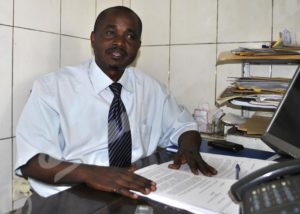
Only the will of the people can judge the limitation of presidential terms.
Hamza Venant Burikukiye, the legal representative of CAPES +, acknowledges that the Arusha Agreement has oriented the Constitution of Burundi, but can be completed through a dialogue led by the CNDI.
“In the whole world, no country is led by an agreement. It is rather governed by the fundamental law which is the
Constitution. So, the latter should take precedence over the Arusha Agreement even in Burundi, “says Burikukiye. According to him, it is the constitution that is the basis of all laws, reason why even the president swears on it.
“The Arusha Agreement is the cornerstone of peace in Burundi and the Constitution puts it into practice, but the will of the people will prevail over the constitution.”
M.Burikukiye puts forth the latter, which alone can judge the limitation of presidential terms. “Every democracy fits the wishes of the people.”
FORSC: “A commission subservient to power”
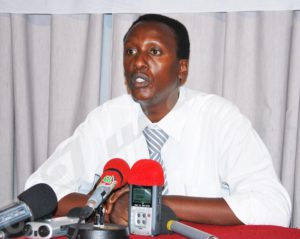
Vital Nshimirimana
Vital Nshimirimana, the chairman of the Forum for the Strengthening of Civil Society (FORSC) states the CNDI was set up to sabotage any initiative for a peaceful resolution of the crisis through an inclusive and genuine process.
“The commission has on several occasions served as a forum for the propagation of hate speech,” he complains. For him, it is not surprising that this commission jumps to conclusions that tend to legitimize the 3rd term of president Pierre Nkurunziza.
Nshimirimana says that the proposed revision of the law on political parties, civil society organizations and religious denominations refers only to the restriction of freedom and a new stage of locking civic and political space.
Thus, the chairman of FORSC calls out the national and international community: “It must take seriously the danger of the work of the CNDI on the country’s future.”
He also recalls that the modification of the Arusha Agreement and the Constitution will open the door to all evil things that would befall the country.
Sheikh Haruna Nkunduwiga “religious denominations also have visions to share”
The leader of the COMIBU (not officially recognized by the government) does not think that the conclusions of the CNDI reflect popular wishes. “But, obviously, this is only a tip of the iceberg of what is undertaken by the ruling party to change the constitution, forgetting that it is thanks to the Arusha Agreement that it came to power.”
Decipherment
From the first session of the dialogue conducted by the CNDI in Kirundo-northern province, it was clear that it was more an exercise in which the organizer received the proposals of a largely predominant CNDD-FDD assembly which was not sometimes embarrassed to congratulate itself. From the start, it was a game of a mirror by way of which the CNDD-FDD looked at itself through the positions it had launched and which were taken back by its members participating in majority in this dialogue
As for the CNDI, it is clear that, despite the good faith it proclaims, it is used by the regime to consolidate its positions. Besides, the government has always requested that it become involved in the dialogue between the former and the opposition, stating that the latter would come to complete what was piloted by CNDI.
This suggests that the CNDI is manipulated into collecting the voices of the will of the people, which in reality is not one. The power suggested to its supporters what they must ask the CNDI.
The latter has become, therefore, a commission in the service of the will of the power and the party from which it originates. By organizing a national masquerade of dialogue, they want to show that they are legitimate and supported by the population.
However, this imposition strategy of the will of the power is seen by other actors in the Burundian conflict as a trompe l’oeil to the extent that the CNDI did not use an inclusive logic. It cannot therefore aspire to objective results when the political climate is dominated by fear. The dialogue led by the CNDI is therefore for the support of the regime. The mission of the CNDI is undoubtedly against the democratic culture claimed by the government of Bujumbura that wants to rule forever. The desire to remain on power has reached a threshold of no return for some, who consider that sharing it is equal to surrendering. And if this strategy continues, the end is the possibility for some actors to use a form of unconventional political participation. The fact is, even if the authority claims that its governance is characterized by a culture of dialogue, of which CNDI is the current instrument, the Bujumbura authority puts in place more and more an authoritarian and exclusive democracy.
Box
The commission was established by a presidential decree number 100/34 in September 23, 2015 and the appointment of its members took place on 17, October.
The CNDI mission is to lead the process of inter-Burundian dialogue throughout the national territory and outside the country. Its mission is to organize meetings, workshops, seminars where participants discuss the political, economic and social issues. Especially an assessment of the Arusha Agreement, the Constitution of the Comprehensive Cease-fire and the Charter of National Unity, in order to find solutions to the problems that Burundi faces.

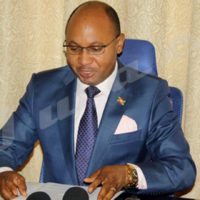
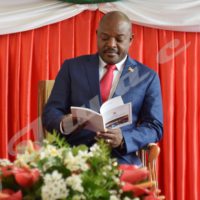
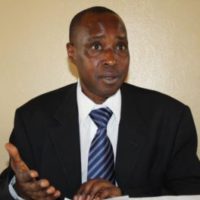
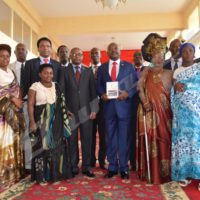
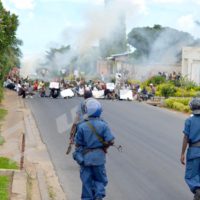













 IWACU Open Data
IWACU Open Data

